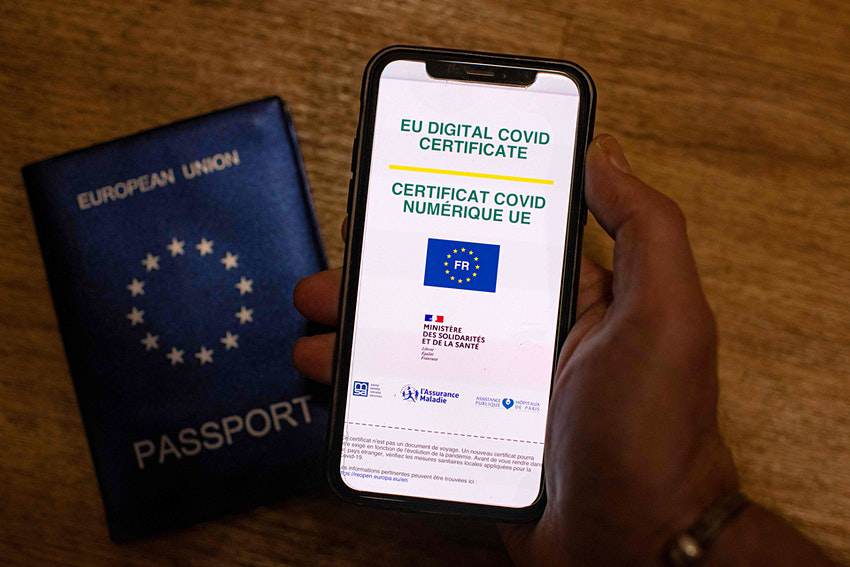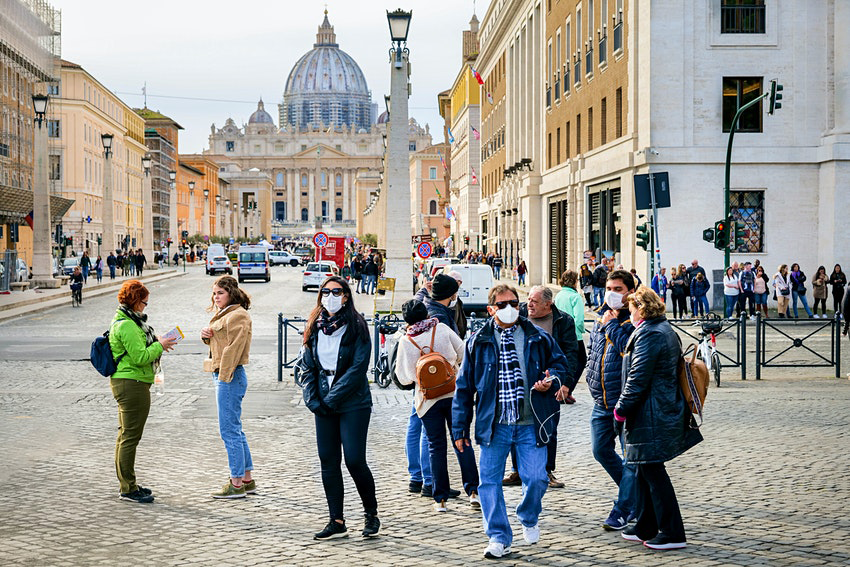
Explained: How are Europe's travel rules changing after February 1?
TripFalcon January 28, 2022
Last Update: 2022-01-28 21:49:30The rules of travel are changing for European Union (EU) citizens and residents in February. For those with a valid EU digital COVID certificate, exploring the continent is about to get easier.
On Tuesday, the EU agreed to a "coordinated approach to facilitate safe free movement" across Europe by lifting restrictions for people with a valid EU digital COVID certificate. This means that EU citziens with a valid cert (proof of vaccination, a recent negative test or recovery) shouldn't face restrictions such as quarantine or testing upon arrival in another EU destination.
Additional testing requirements can remain in place for people who are unvaccinated or who are not up-to-date with their booster vaccine schedule.
"This recommendation responds to the significant increase in vaccine uptake and the rapid roll-out of the EU Digital Covid certificate, and replaces the previously existing recommendation," a statement from the European Council says.

The European Commission wants to take a coordinated response to boosters ©Getty Images
Clément Beaune, Secretary of State for European Affairs of France, said that the idea is to take a person-based approach when setting out restrictions, rather than focusing on the country they are coming from.
"It is so we are much more focused on the individual situation of people—vaccinated or unvaccinated—rather than on the epidemiological situation of this or that country or region of the EU, with it being important to have more restrictions for people who are unvaccinated," Beaune told reporters on Tuesday.
In addition, on February 1, the EU is shortening the validity of vaccine status in the COVID certs to nine months (at most) since a person’s last dose. Here's a breakdown of the latest rule changes.
What is an active EU digital COVID cert?
The EU digital COVID cert allow EU citizens and residents to easily present their vaccination status to travel within the bloc during the pandemic. According to the EU Council, "travelers in possession of a valid EU digital COVID certificate should not be subject to additional restrictions to free movement".
To keep it active, you'll need to get a booster if more than nine months has passed since your last recommended dose of a primary vaccine schedule. That is nine months after your second shot of an mRna vaccine (Pfizer, Moderna or AstraZecenca) or nine months after a Johnson & Johnson vaccine. If you've recovered from the virus, you'll need a booster nine months after your first and only shot.
Without a booster, you can take a negative PCR test within 72 hours of traveling or a negative antigen test within 24 hours.
People can also keep it active with a certificate of recovery, provided that no more than 180 days have passed since the last positive result.
Why is there a nine-month time limit on the current certs?
The nine-month time limit applies to vaccination status only and "takes into account the guidance of the European Centre for Disease Prevention and Control (ECDC) on the administration of booster doses as of six months, and provides for an additional period of three months to ensure that national vaccination campaigns can adjust and citizens can have access to boosters," the European Commission said last month.
What about children?
Children under 12 are generally exempt from needing a digital COVID cert to travel without restrictions under EU guidelines.
Will every EU country follow the same rules?
When the certs were introduced in June last year it was up to member states to decide how long to accept the vaccination certs for travel, but the new rule on validity is supposed to be binding on all 27 EU member states following sufficient support for it.
However, France is doing things its own way and requiring that people get their booster within seven months of their last dose (or two months in the case of the Johnson & Johnson vaccine). From February 15, that timeframe will be reduced to four months.
Malta is also going a step further by requiring people receive their booster within three months of their last shot.

The rules come into effect on February 1 © Getty Images
Do I need a new EU digital COVID cert for travel?
The rules come into effect on February 1 and many governments have already begun issuing citizens with new certificates to include their booster shot information. Those who haven't received a booster shot but who had their last jab within the past nine months will still be permitted to use their current vaccination certificates for travel. Those who are unvaccinated can continue to travel by taking a negative COVID-19 test.
Is the new certificate required to enter venues?
As well as allowing people to present their vaccination status for travel, many member states require the certificates from people to gain access to restaurants, gyms and many other venues across Europe.
The new rules on the validity of the passes only affect how they're used for travel, it's up to individual countries to decide if they want people to be up-to-date with their booster shots before being granted entry to certain venues.
Though some countries, such as France, have already agreed that people who are eligible for booster shots will need to get one in order to validate health passes that are used to access restaurants, cafes, museums and public transport.
"The new rules on the acceptance period of vaccination certificates apply for the purposes of travel. When introducing different rules to use the certificates at national level, member states are encouraged to align them to these new rules to provide certainty for travellers and reduce disruptions," the EU Commission has said.
Do non-EU travelers need a booster to be considered fully vaccinated for travel in the EU?
The new rules only apply to the European member states signed up to the EU digital COVID certificate program for the purposes of intra-EU travel. It's up to each country to determine their own entry rules for visitors from outside the bloc.

